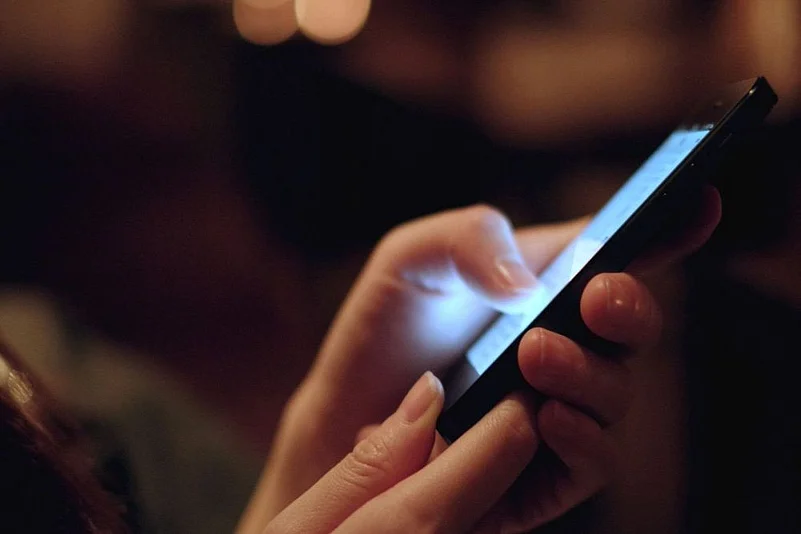Blue light emitted from smartphones and other digital devices can accelerate blindness by transforming vital molecules in the eye's retina into cell killers, a study has found.
Macular degeneration, an incurable eye disease that results in significant vision loss starting on average in a person's 50s or 60s, is the death of photoreceptor cells in the retina.
Those cells need molecules called retinal to sense light and trigger a cascade of signalling to the brain.
"We are being exposed to blue light continuously, and the eye's cornea and lens cannot block or reflect it," said Ajith Karunarathne, an assistant professor at the University of Toledo in the US.
"It's no secret that blue light harms our vision by damaging the eye's retina. Our experiments explain how this happens, and we hope this leads to therapies that slow macular degeneration, such as a new kind of eye drop," said Karunarathne.
The study, published in the journal Scientific Reports, found that blue light exposure causes retinal to trigger reactions that generate poisonous chemical molecules in photoreceptor cells.
"It's toxic. If you shine blue light on retinal, the retinal kills photoreceptor cells as the signalling molecule on the membrane dissolves," said Kasun Ratnayake, a PhD student researcher working in Karunarathne's group.
"Photoreceptor cells do not regenerate in the eye. When they're dead, they're dead for good," said Ratnayak.
Karunarathne introduced retinal molecules to other cell types in the body, such as cancer cells, heart cells and neurons. When exposed to blue light, these cell types died as a result of the combination with retinal. Blue light alone or retinal without blue light had no effect on cells.
"No activity is sparked with green, yellow or red light. The retinal-generated toxicity by blue light is universal. It can kill any cell type," Karunarathne said.
The researcher found that a molecule called alpha-tocopherol, a Vitamin E derivative and a natural antioxidant in the eye and body, stop the cells from dying.
However, as a person ages or the immune system is suppressed, people lose the ability to fight against the attack by retinal and blue light.
"If you look at the amount of light coming out of your cell phone, it's not great but it seems tolerable," Dr. in the UT Department of Chemistry and Biochemistry, said.
"Some cell phone companies are adding blue-light filters to the screens, and I think that is a good idea," said John Payton, visiting an assistant professor at the University of Toledo.


























